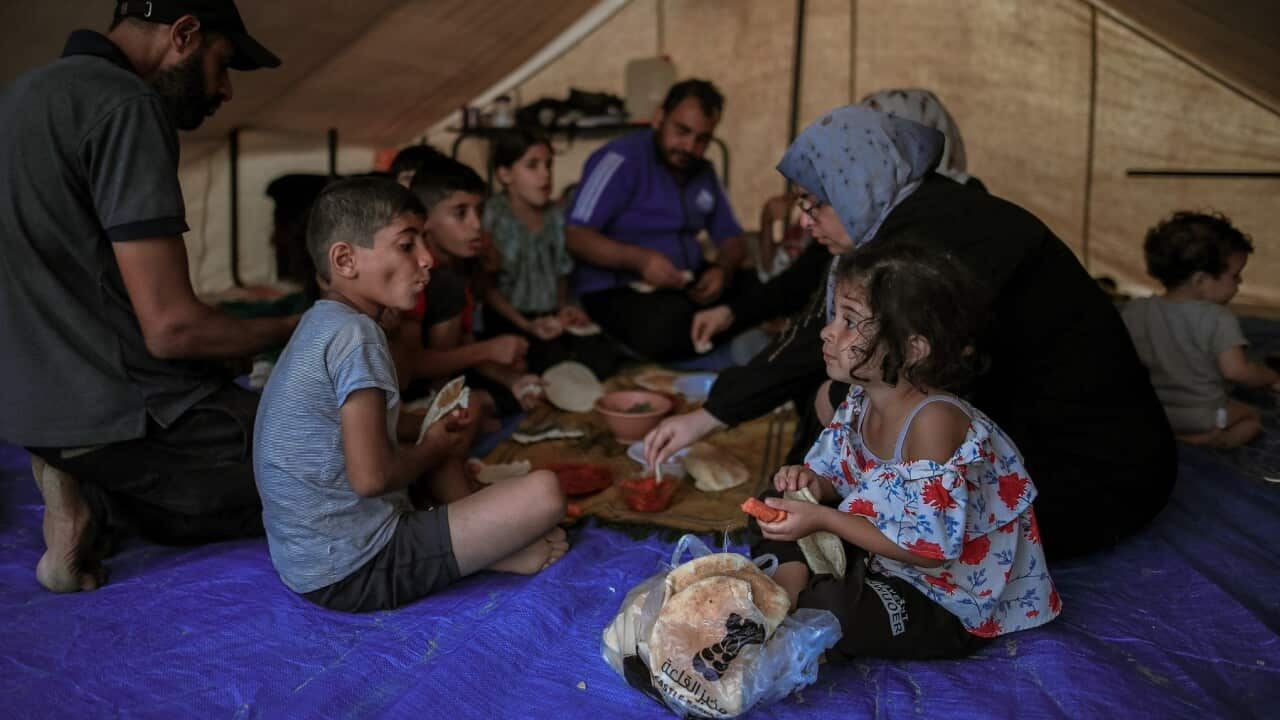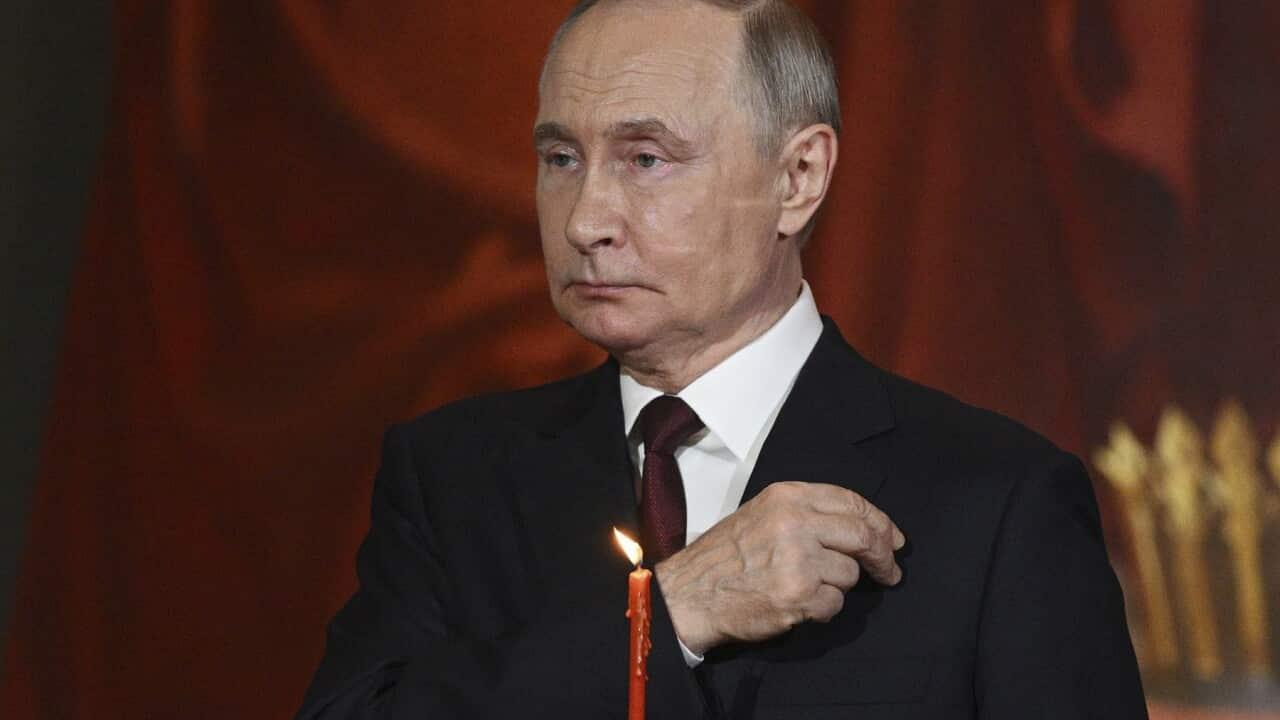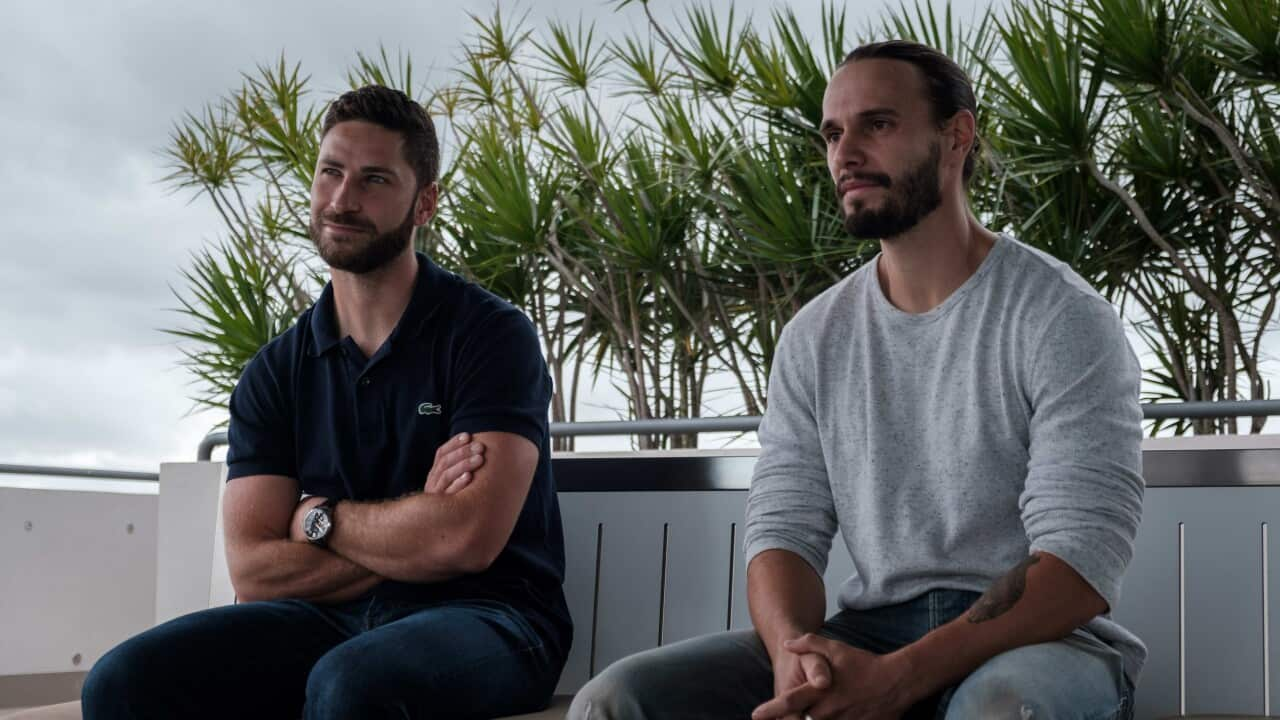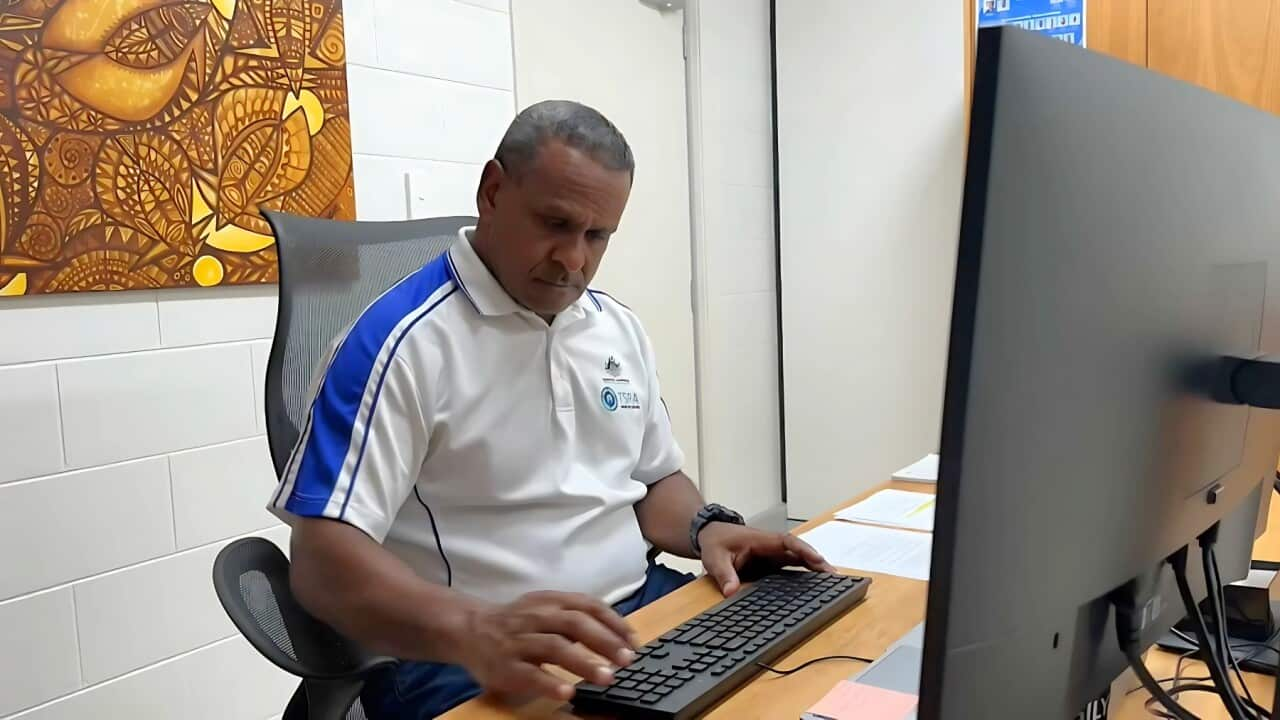TRANSCRIPT
This boy is among a group of Australians stranded at the Rafah crossing in Gaza.
"There is no place that's safe here. There is no place... I want to go back to riding my bike in my suburb, I want to go back to playing soccer with my friends. I've really had enough. This is not natural."
His family are among the scores of foreign nationals who've arrived at the Rafah Crossing - passport in hand - hoping to get out.
The boy's mother has told SBS Arabic News that diplomatic efforts to re-open the crossing for civilians to leave have so far failed.
"We've been told by the Australian officials - they called us multiple times telling us to come here to cross the border, but unfortunately... there's nothing serious. There's no serious action so far. We are so disappointed. We are just really hoping to be able to cross just a few kilometres - just to be in a safer place."
The Department of Foreign Affairs says it's assisting 77 Australians, permanent residents and immediate family members in Gaza, telling SBS "the situation in Gaza is highly challenging and rapidly changing."
Israeli authorities for their part have repeatedly urged those in northern Gaza city to make their way south, for their safety.
But it, too, has come under attack.
At the weekend, an Israeli airstrike hit a cafe in the southern city of Khan Younis - just around ten kilometres from the crossing - where displaced Palestinians had gathered to recharge their phones.
Around a dozen people were killed.
For 12 year old Yazan Hellis, from Melbourne, the fighting is becoming almost a terrible normality.
"I'm starting to get used to it. It's still scary where there's bombing nearby, but I'm kind of starting to get used to it."
Meanwhile, back home in Australia, tensions threatening to escalate in Lebanon are bringing back gruelling memories for many of a war they had survived in their home country.
In 2006, the Mokdad family from Sydney were just a week into their family holiday in Lebanon's south - and were shocked to find themselves caught up in Israel and Hezbollah's five week war.
Sister Sarah says they were forced to flee their grandfather's home and take refuge up north.
"Two weeks later we were still there, 30 of us, as many as we could fit in this 2-bedroom unit."
They later made a dangerous escape to Syria in the night, driving on roads, they said, that - minutes later - were bombed - and the house they had evacuated was destroyed.
"We had no choice. It was risky. We did think about about it and we took the risk. Death was pretty much right in front of us."
Now, seventeen years on, Australians in Lebanon are worried they could find themselves in similar situations - urged last week to return home after this travel warning from Foreign Minister Penny Wong.
"If you are an Australian in Lebanon, you should consider leaving now if it is safe to do so."
In Sydney, travel agent Zakaria Ammoun's phone has been ringing non stop since.
"We are very, very busy since the government sent a warning to the government... They are very scared. If the airport is closed the airport is closed they are stuck there."
Sarah Mokdad says many of her relatives are preparing to evacuate.
But for her Australian cousin, Nina Rizk - who was mid-holiday in Lebanon before the events of October the 7th - it's not that simple.
"That's so unfair and selfish of us to just to pack up and run where these people are actually stuck here. We were lucky enough to born in Australia and we've got a have a safe haven there - but these people don't."
Sarah says that based on her experience, no-one and nowhere is safe.
"The fact that I was there and I lived it, it's definitely not something I would wish on any human."













